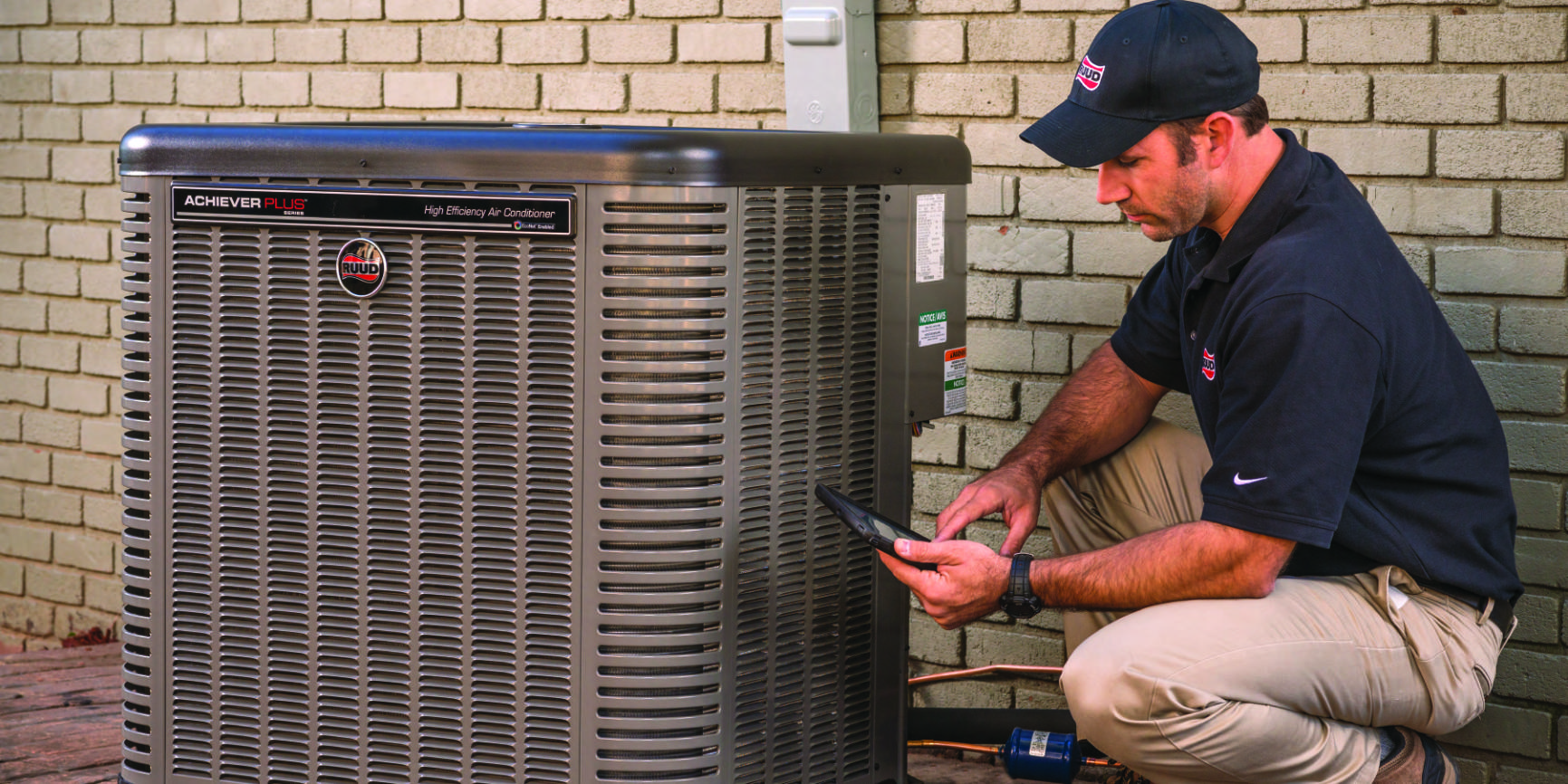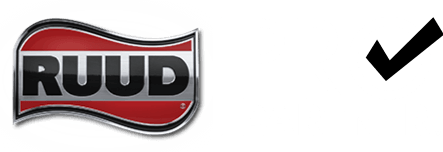
When replacing an HVAC system, it’s critical for an HVAC professional to guide customers towards the right solution, which can be based on a variety of factors.
Assessing HVAC Needs
A pre-installation evaluation will clarify the conditions of the system and the needs of the replacement project. In this evaluation, HVAC technicians work with the customer and analyze the system to understand any known and unknown issues to address. The technician will also perform a Manual J calculation to determine the heating and cooling needs of the home to recommend the capacity of HVAC equipment needed.
Installation Costs
While most homeowners want to keep HVAC replacement costs to a minimum, professional installation is required for safety and efficient maintenance. Installation labor costs often make up a quarter to one third of the total furnace replacement project, but this can vary depending on the new furnace and project needs. Certified HVAC contractors such as Ruud Pro Partners are a great resource throughout the project, from the HVAC equipment selection process to any assessing requirements related to city code or the property.
Permits & Fees
Depending on the rules and regulations of your city, inspections and local permits might be required for an HVAC replacement project. It’s essential to understand surrounding city’s laws to most effectively advise customers and avoid any delays.
Additional Project Update Costs
Additional costs should be expected for other system upgrades and the resulting equipment needs. Ductwork replacement may be needed, which can cost hundreds of dollars for every duct run. Other unexpected costs typically encountered result from work to drywall, upgradable HVAC features, electrical circuits and even gas lines. You should always make sure to identify any additional issues as soon as possible and to inform customers that unforeseen costs may arise.
Heating & Cooling Considerations
Read on to learn more about the cost considerations specific to AC units and furnaces.
Central AC Installation Costs
AC replacement projects not only result in a more powerful and quiet unit, but often result in monthly utility bill savings from updated ductwork and a more efficiently functioning unit. Below we’ll break down the average installation prices and why these prices vary so you have the confidence for a successful installation of your next AC unit.
What is the average central air conditioner replacement cost?
Average AC replacement costs can vary depending on the size and brand of the new AC unit, install location and additional setup needs. Total AC replacement costs range anywhere from $3,000 to over $7,000 on average.
After you size the right AC unit for your customers’ needs, the installation cost can increase if ductwork repair is needed. Larger homes may have more complicated ductwork, which can increase the total replacement cost to over $10,000. HVAC professionals such as Ruud Pro Partners understand how to fully assess accurate costs and total work needed.
Central air conditioner installation price factors include:
- Cost of labor: Contractors who have a proven track record, or are a certified partner to establish confidence and trust.
- Determine your AC needs: In addition to accurate sizing of an AC unit based on cooling needs, consider efficiency from units with EER, SEER and ENERGY STAR® energy-saving ratings. Some of these efficient units may be more expensive upfront but can save customers money long-term.
- Brand: Different brands cost more than others, offering different features and warrenties.
- Buying at the right time: Find a good deal on a new air conditioning unit and look for one that you can afford. Some units can be financed overtime and offer great warranties.
- Rebates and tax credits: Be on the lookout for a tax credit from your local government and rebate from your utility company and manufacturers. You can often find financial incentives for the use of high-efficiency air conditioners.
AC installation costs by cooling capacity*:
- 1.5 Tons: 18,000 BTU installation average cost $2,000.
- 2 Tons: 24,000 BTU installation average cost $2,620.
- 2.5 Tons: 30000 BTU installation average cost $2,895.
- 3 Tons: 36000 BTU installation average cost $2,920.
- 3.5 Tons: 42000 BTU installation average cost $3,550.
- 4 Tons: 48000 BTU installation average cost $3,650.
- 5 Tons: 60000 BTU installation average cost $3,690.
Why may my home need additional air duct installation or modification to install a new AC unit?
According to experts, most older homes' existing ducts can’t handle the airflow of a modern air conditioner and along with that may lack space to run a refrigerant line to the exterior, or room for an air conditioner coil or properly-sized vents. Although updating will incur a high upfront cost, you’ll see the long term saving in your monthly energy bill due to the efficiency the updates produce.
Furnace Replacement Costs
The national average costs for a new furnace installation is $5,000, which can vary between $3,500 to $7,500 depending on many different factors*. These costs include the cost of the furnace, any required permits, additional HVAC or related project updates, required parts and installation.
Typical Furnace Replacement Needs
Depending on the needs of a home furnace replacement project, there are a few considerations that will impact the total furnace replacement cost. For homeowners, it can be beneficial for local HVAC contractors to help identify the best furnace to efficiently heat your home. Installing a new furnace that’s more efficient will result in monthly savings with less repairs and lower energy bills. Of course, the up-front investment will impact long-term savings for customers. Understanding these costs will best position projects for long-term success and repeat service appointments.
Furnace Replacement Costs
The cost of an actual furnace typically makes up the majority of the replacement costs. Furnace prices can vary between $1,000 to $3,500, depending on the furnace-type and desired performance.
Selection of a replacement furnace should consider BTU heating needs, efficiency, design, available space and performance. HVAC technicians can help recommend the right furnace through a furnace load calculation and an assessment of the installation site.
Based on the furnace type that your home will best be served by, regardless if it is a “downflow” or “upflow” furnace, the correct furnace size is essential for efficiency. Oversized furnaces won’t result in increased efficiency as the heating cycling will be inconsistent with more inefficient time spent heating and cooling down. Higher energy efficient systems such as an Energy Star Rating 90% AFUE rated furnace will cost more, but will save you more over time.
For cooler climates, gas furnaces are the most common and are typically considered the best option. Gas furnaces costs are higher than other furnace types such as electric furnaces, and can vary in cost up to $4,000.
HVAC Installation Needs & Next Steps
When you’re ready to buy and install a new HVAC unit, look no further than the HVAC contractor's at Ruud Pro Partner to receive an estimate. Our dedicated team is here to help advise you on the right central air conditioning unit for you and all your installation needs.
* Source: "How Much Does a Central AC Unit Cost to Install? Modernize." Modernize, https://www.modernize.com/hvac/cost-calculator/central-ac-unit-installation.



